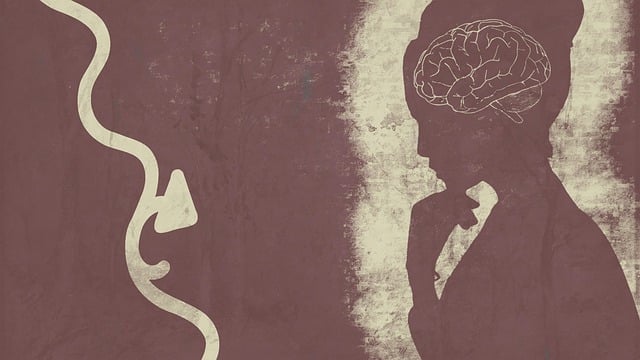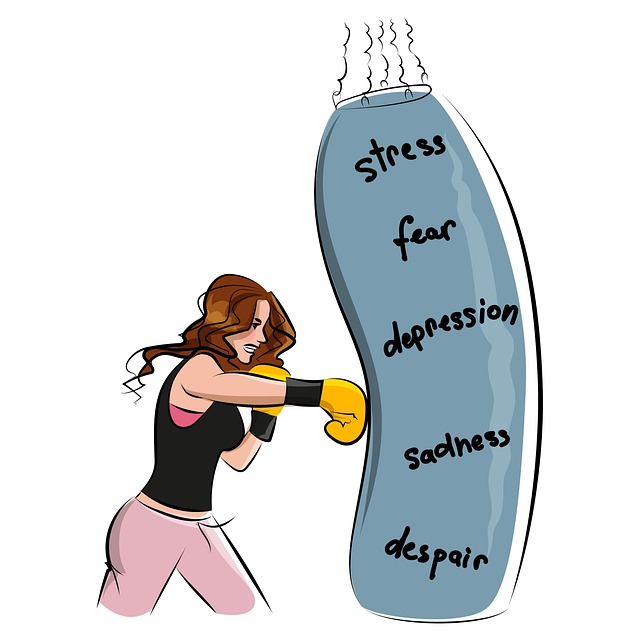Centennial Divorce Therapy leverages positive thinking as a powerful tool for enhancing mental well-being during divorce. Through practices like gratitude journaling, cognitive reframing, and affirmations, clients reduce stress, anxiety, and depression while boosting resilience and life satisfaction. This holistic approach includes regular assessments to track progress, ensuring therapy empowers individuals to navigate challenges effectively and fosters healthier co-parenting relationships.
Positive thinking exercises are gaining prominence as a powerful tool in mental health practices, including Centennial Divorce Therapy. This article explores the transformative potential of positive thinking on psychological well-being and its integration into therapeutic settings. We delve into practical techniques to cultivate daily positive thinking practices, highlighting their impact on divorce therapy outcomes. By understanding these strategies, therapists can enhance their approach, fostering resilience and hope for clients navigating divorce.
- Understanding Positive Thinking and its Impact on Mental Well-being
- Integrating Positive Thinking Exercises into Therapy Sessions
- Practical Techniques for Daily Positive Thinking Practice
- Measuring Success and Long-term Benefits of Positive Thinking in Divorce Therapy
Understanding Positive Thinking and its Impact on Mental Well-being

Positive thinking is a powerful tool that can significantly impact an individual’s mental well-being and overall quality of life. It involves cultivating optimistic attitudes, reframing negative thoughts, and focusing on personal strengths and accomplishments. Research has shown that positive thinking exercises, such as gratitude practices, self-affirmations, and cognitive reframing, can reduce stress, anxiety, and depression while enhancing resilience and life satisfaction.
This concept is particularly relevant in the context of Centennial Divorce Therapy, where individuals often grapple with emotional challenges and complex transitions. By integrating positive thinking techniques into therapy sessions, mental health professionals can empower clients to navigate conflicts more constructively using conflict resolution strategies and communication strategies. Effective risk management planning becomes easier when clients are emotionally resilient and better equipped to handle stressful situations, ensuring a healthier and more stable recovery process.
Integrating Positive Thinking Exercises into Therapy Sessions

Integrating Positive thinking exercises into therapy sessions at Centennial Divorce Therapy offers a powerful approach to enhancing well-being and fostering resilience. These practices, designed to cultivate optimism and reframe negative thought patterns, can significantly contribute to depression prevention. By incorporating techniques such as gratitude journaling, cognitive reframing, and positive affirmation, therapists empower clients to develop a robust self-care routine that promotes better mental health.
This holistic strategy not only aids in managing symptoms of anxiety and depression but also boosts confidence levels. Through regular engagement with these exercises, individuals gain valuable tools to navigate life’s challenges more effectively, leading to improved coping mechanisms and enhanced overall satisfaction.
Practical Techniques for Daily Positive Thinking Practice

Engaging in daily positive thinking exercises is a powerful tool for personal growth and well-being, especially when supported by professional guidance from Centennial Divorce Therapy. One practical technique involves setting aside dedicated time each day to reflect on and appreciate the positives in one’s life. This can be as simple as writing down three good things that happened during the day or expressing gratitude for specific people, experiences, or even small pleasures. Such practices help individuals retrain their minds to focus on the abundance rather than the scarcity, fostering a more optimistic outlook.
Additionally, incorporating affirmations into daily routines can significantly enhance positive thinking. Mentally repeating positive statements about oneself and one’s capabilities can challenge negative thought patterns. For instance, affirming “I am worthy of love and happiness” or “I have the strength to overcome challenges” can subtly shift one’s mindset over time. The support of Trauma Support Services and Mental Health Policy Analysis and Advocacy resources further strengthens these practices by providing frameworks for understanding and managing thoughts, thereby reinforcing Positive Thinking as a fundamental aspect of holistic well-being.
Measuring Success and Long-term Benefits of Positive Thinking in Divorce Therapy

Measuring success and understanding the long-term benefits of positive thinking in divorce therapy is a multifaceted process. Through regular assessments, therapists at Centennial Divorce Therapy evaluate clients’ emotional well-being, identifying improvements in mood and overall life satisfaction. These changes often manifest as reduced symptoms of anxiety and depression, essential aspects of depression prevention strategies. The impact extends beyond individual therapy sessions; fostering positive thinking can enhance the effectiveness of co-parenting plans, promoting healthier relationships between separated parents and their children.
Moreover, integrating emotional intelligence into the therapeutic process allows for a deeper understanding of clients’ feelings and thought patterns. This enhanced emotional awareness facilitates better risk management planning for mental health professionals, enabling them to proactively address potential setbacks. By focusing on positive thinking, Centennial Divorce Therapy not only supports individuals through the immediate challenges of divorce but also equips them with resilience for lifelong mental well-being.
Implementing positive thinking exercises in therapy sessions, as explored through the lens of Centennial Divorce Therapy, offers a powerful tool for enhancing mental well-being. By integrating these practices daily, therapists can empower individuals to navigate divorce with resilience and hope. The measured success and long-term benefits observed in this context highlight the profound impact that cultivating a positive mindset can have on one’s life trajectory post-divorce.














